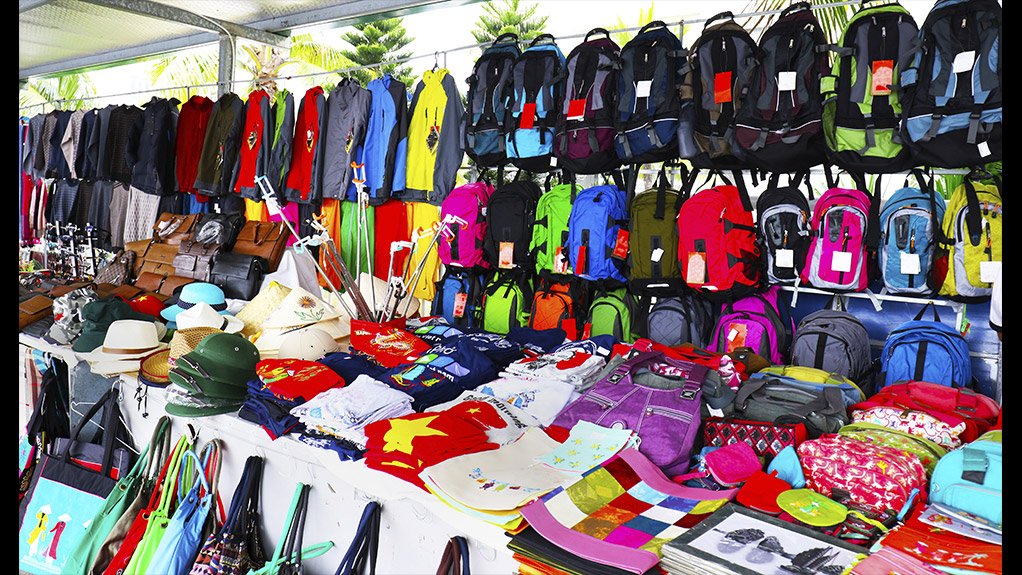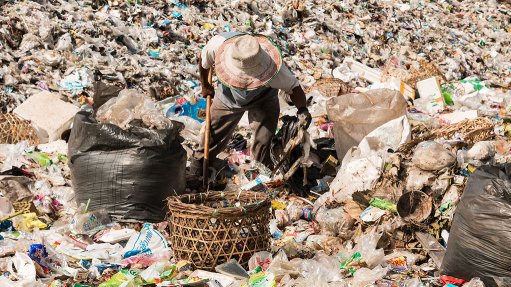Tracit recommends South Africa employ a PPP initiative to curb illegal trade
The Transnational Alliance to Combat Illicit Trade (Tracit) has launched a second edition of South Africa’s ‘Fight Against Illicit Trade’ report, which recommends a public-private partnership (PPP) initiative to aid government in solving this national threat.
Despite authorities in South Africa’s efforts to deal with the illegal trade of goods such as cigarettes, alcohol, clothing and pharmaceuticals, as well as corruption and money laundering, illicit trade remains deeply entrenched and highly damaging to the economy.
“If left unchecked, illicit trade will continue to rob government of vital tax revenues, distort legal markets and deter investment,” said Tracit programmes director Esteban Giudici during a Business Unity South Africa- (Busa-) hosted launch of the new report.
The 2025 Tracit report on South Africa points out how inflation in 2023, persistent high unemployment and organised crime networks, as well as lingering post-Covid-19 effects, that left a ripe environment for criminality, have exacerbated illicit trade.
This activity is also increasingly occurring on digital platforms such as social media and online marketplaces, which intensifies the challenge.
Giudici highlighted the need for bold policies and strong enforcement to dismantle illicit networks, including through a structured PPP, such as those that were helping to solve South Africa's electricity and logistics crises, to support the fight against illicit trade.
The proposed PPP should facilitate practical cooperation between enforcement authorities such as South African Revenue Service, National Prosecuting Authority and the South African Police Service, and affected industries. It can also improve intelligence-sharing and promote joint initiatives aimed at detection, prevention and capacity building.
Tracit also suggests that South Africa appoint a national inter-agency anti-illicit-trade coordinator, increase penalties and enhance data collection – particularly through using digital technology such as Big Data and AI, especially since criminals are increasingly using these technologies for illicit trade.
“Targeted and coordinated interventions at the level of government, business, labour, communities and civil society is ultimately necessary to tackle the corrosive impacts of illicit trade that undermine the national economy,” Giudici said.
Busa CEO Khulekani Mathe agreed, stating that illicit trade affected multiple sectors of the economy and that South Africa’s existing challenges of high unemployment and other economic pressures increased with organised crime.
He added that illicit trade also eroded public trust and institutional capacity, while distorting fair competition for businesses that operated within the law.
“Illicit trade results in products that cannot be traced or guaranteed for quality, which poses risks for consumers. Besides, when our government cannot raise the revenue it needs to fulfil its functions, all of society suffers,” Mathe noted.
Business Against Crime South Africa CEO Dr Graham Wright emphasised that consumers were happy to buy counterfeit goods such as automotive parts, electronics and cosmetics in many instances owing to their lower costs, but were often unaware that it posed a danger to public safety and the South African economy as a whole.
Tshwane Automotive Special Economic Zone (SEZ) chairperson Lionel October said the idea of a PPP across sectors, not just tobacco, alcohol or mining, would strengthen government’s capacity.
He also called for the increased formalisation of township economies to cover revenue shortfalls for government.
REPORT FINDINGS
The report emphasises the growing problem of the informal economy, with about 7.5-million currently working informally and growing at a yearly rate of 6.7% - faster than the formal economy – resulting in tax losses for government.
Currently, only 2.6% of taxpayers supply 76% of personal income tax and 0.1% of companies pay 72% of corporate tax in the country.
While South Africa had ratified ten core anti-illicit-trade treaties, implementation had been lacking, Giudici said, adding that the Border Management Authority had intercepted many illegal goods but it faced significant vulnerabilities such as understaffing and funding shortages.
Criminal enablers of illicit trade, including corruption and pandemic legacies, keep illegal markets profitable. South Africa’s continued greylisting also underscores the need for further processes and more robust anti-money-laundering frameworks.
Elaborating on the after-effects of Covid-19, Giudici said the era of bans let criminal networks capture market shares, with illicit cigarettes still accounting for 60% of sales and illicit alcohol 22% of sales.
Illicit alcohol sales account for R11-billion in lost excise revenue for government every year. Legitimate alcohol is priced on average 40% higher, which drives consumers toward illegal supply.
In turn, illicit cigarettes represent R18-billion in tax losses every year, with illegal packs selling at between R5 and R10 each, compared with R36 each for legitimate packs.
Tracit estimates that counterfeit clothing and products equal as much as 10% of the economy, with hotspots in major cities growing.
A delegate at the report launch, South African Petroleum Industry Association strategy head Kevin Baart, pointed out that illicit blending of paraffin into diesel amounts to more than R3-billion a year in losses associated with the fuel levy and Road Accident Fund levy.
Moreover, despite the availability of modern customs tools, efficiency is eroded by port inefficiency and understaffed borders. Particularly, increasing inefficiencies at Port of Cape Town are exploited by illicit traders, Tracit points out in the report.
Additionally, drones, scanners, patrol vehicles and integrated IT systems are available in the defence force, but real-time risk profiling at ports and land borders remains weak.
This while online platforms, SEZs and postal networks in South Africa are exploited by illicit traders. Tracit finds that South Africa has no platform liability rules for online marketplaces and social media, as well as weak seller verification practices and minimal proactive monitoring.
South Africa is also yet to join the Universal Postal Union Illicit Goods Mitigation Expert Team that assists in securing postal supply chains from illicit trade, as well as the World Customs Organisation’s Clean Free Trade Zone Certification.
In the report, alongside its other recommendations, Tracit is in the process of trying to arrange a Combatting Illicit Trade Summit gathering that is Africa-focused, which it has successfully hosted in other regions. The summit could gather customs officials from across the continent to exchange information and collaborate on combatting illicit trade.
The summit can also help in shaping the PPP platform to connect stakeholders such as brands, law firms, associations and service providers.
Article Enquiry
Email Article
Save Article
Feedback
To advertise email advertising@creamermedia.co.za or click here
Announcements
What's On
Subscribe to improve your user experience...
Option 1 (equivalent of R125 a month):
Receive a weekly copy of Creamer Media's Engineering News & Mining Weekly magazine
(print copy for those in South Africa and e-magazine for those outside of South Africa)
Receive daily email newsletters
Access to full search results
Access archive of magazine back copies
Access to Projects in Progress
Access to ONE Research Report of your choice in PDF format
Option 2 (equivalent of R375 a month):
All benefits from Option 1
PLUS
Access to Creamer Media's Research Channel Africa for ALL Research Reports, in PDF format, on various industrial and mining sectors
including Electricity; Water; Energy Transition; Hydrogen; Roads, Rail and Ports; Coal; Gold; Platinum; Battery Metals; etc.
Already a subscriber?
Forgotten your password?
Receive weekly copy of Creamer Media's Engineering News & Mining Weekly magazine (print copy for those in South Africa and e-magazine for those outside of South Africa)
➕
Recieve daily email newsletters
➕
Access to full search results
➕
Access archive of magazine back copies
➕
Access to Projects in Progress
➕
Access to ONE Research Report of your choice in PDF format
RESEARCH CHANNEL AFRICA
R4500 (equivalent of R375 a month)
SUBSCRIBEAll benefits from Option 1
➕
Access to Creamer Media's Research Channel Africa for ALL Research Reports on various industrial and mining sectors, in PDF format, including on:
Electricity
➕
Water
➕
Energy Transition
➕
Hydrogen
➕
Roads, Rail and Ports
➕
Coal
➕
Gold
➕
Platinum
➕
Battery Metals
➕
etc.
Receive all benefits from Option 1 or Option 2 delivered to numerous people at your company
➕
Multiple User names and Passwords for simultaneous log-ins
➕
Intranet integration access to all in your organisation





















